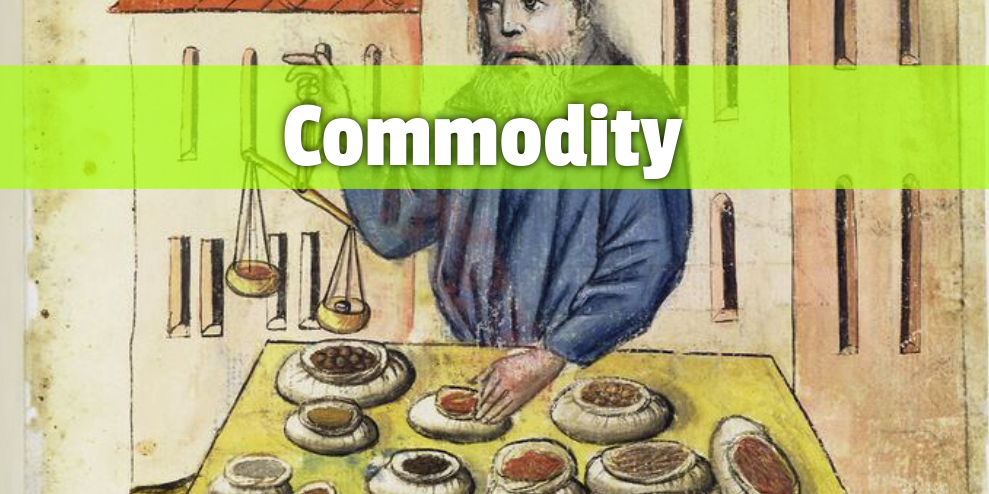Commodity

Any result of human work that is produced to be exchanged in the market.
Origins
Not every product of human labor is a commodity. In fact, until very recently most production was not intended for the market. Even the first Neolithic exchanges cannot be considered as mercantile trade. As far as we know, the original experiences of exchange took the form of more or less symbolized and ritualized exchanges of gifts between communities. The goods and services exchanged did not establish an exchange value between them, did not claim to be equivalent and were therefore not commodities.
During the development of slavery as a mode of production, commercial exchange was expanded for the first time without becoming the main objective of social production. In the end, the main productive force, slave labor, was only a commodity in a very limited sense. The feudalism that followed was not a mercantile system either, and in fact coinage was practically non-existent in Europe during the eighth to tenth centuries and very scarce until the twelfth century. The Feudal serfs could only be considered, very marginally and belatedly, as commodity producers: most of their work produced useful objects for their own consumption or that of their masters which were not intended for exchange or measured by an exchange value. Not even the peasant's labor force and the land on which he worked could be sold or exchanged for other commodities or money.
Capitalism is the first mode of production that requires the commodification of all products and social relations. Its spread has turned the commodity into the universal form of labor and its products, and in doing so has cloaked social relations in the false egalitarianism of exchange between equivalents, presenting relations between people as relations between things, the famous commodity fetishism.
http://dictionary.marxismo.school/Commodity